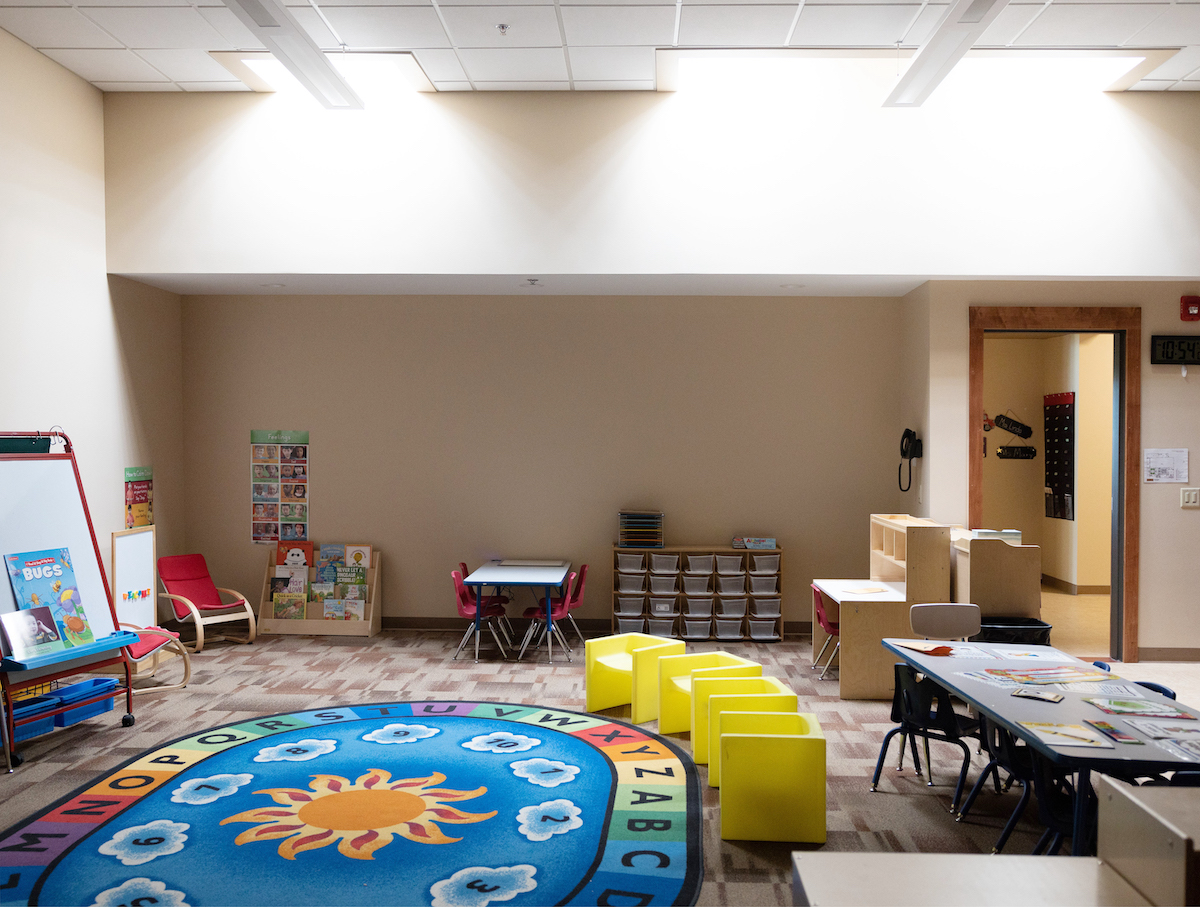Lincoln School, a former 90,000-sf Target retail store in Fergus Falls, Minn., was repurposed into Independent School District 544’s newest campus. The campus provides the community with a new early childhood education facility and a home to the Otter Preschool and Children’s Corner. The complex emloys some 40 staff and educators and supports over 300 students.
The new facility incorporates a spacious main entrance with secure check-in, offices, cafeteria, gym, and classrooms, all with a bright and naturally lit interior delivered by Solatube daylighting technology.
BRINGING DAYLIGHT INTO THE INTERIOR
Transitioning a retail store into a functioning educational facility required the lead architect, Scott DeMartelaere, of AIA Design Intent Architects, to address various building and fire code requirements as well as a lack of windows. Data from multiple studies show that daylight improves student performance.
“The teachers wanted natural light in all of the classrooms," said DeMartelaere. "Because this is a big box, the inner classrooms would not have exterior walls and windows that would allow the introduction of natural light.”
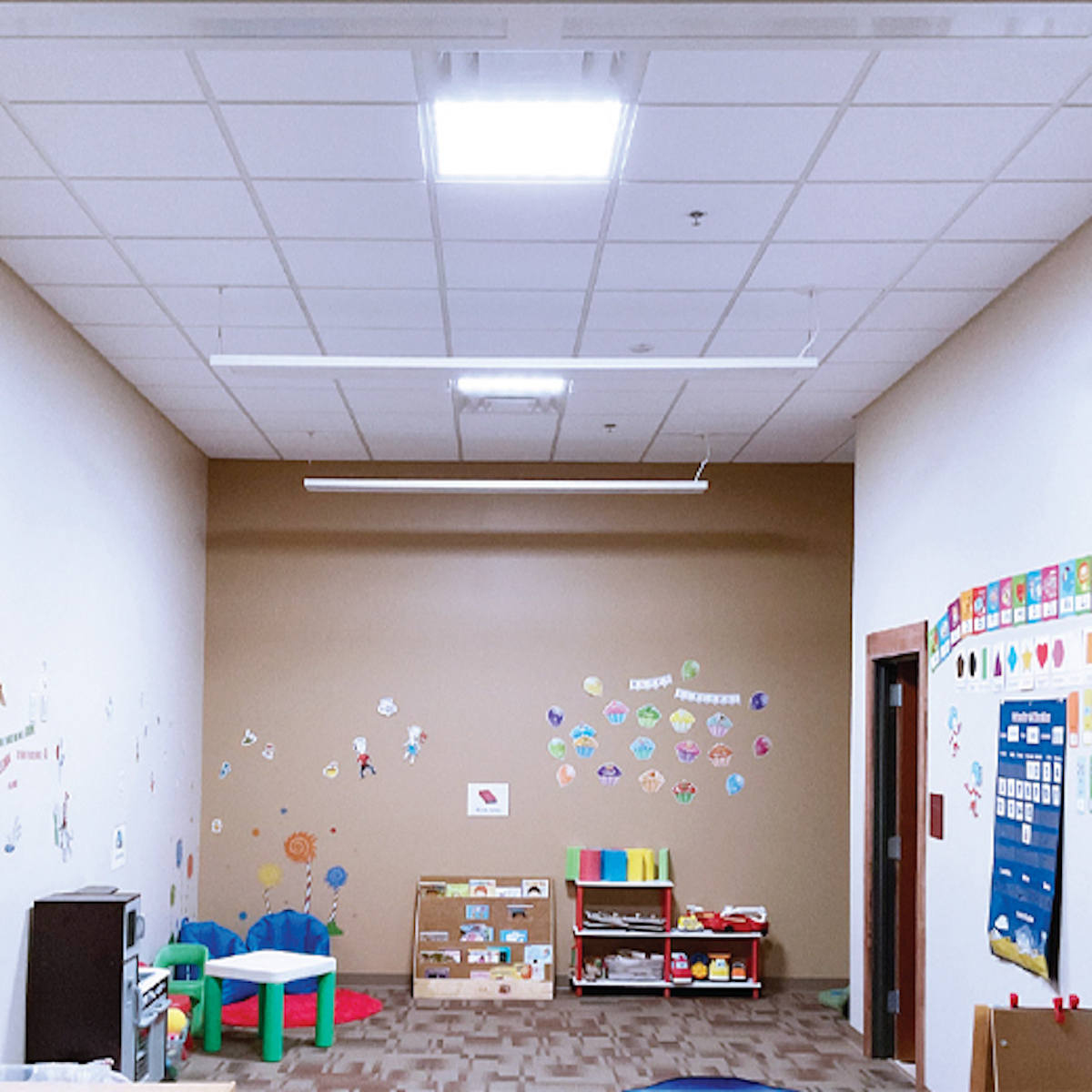
The design team needed to find a different way to capture and deliver daylight to every classroom. Repurposing a big box store into a school also required significant construction modifications, as educational building codes differ significantly from retail building codes, particularly with regard to roofing structure and fire code compliance.
An educational facility construction type needs to achieve an International Building Code (IBC) fire-resistance classification of IIB, at a minimum, but the existing square footage was too large for a single occupancy of a Type E-IIB by about 1,000 sf. The team also needed to convert the occupancy type from M to I-4/E, which is required for occupants receiving custodial care. Fire codes required a higher snow load capacity on the roof than what was currently in place, as well as the replacement of the current exterior wood furring, and the use of intumescent paint.
DAYLIGHTING SYSTEMS ADD TO FUNCTIONALITY
By using Solatube Daylighting Systems, the district was able to make the big box facility highly functional and full of daylight – breathing new life into a vacant building.
Forty-nine Solatube SolaMaster units were used to capture daylight at the rooftop and transfer natural light deep into the interior of the building on both sunny and cloudy days.
Eighteen SolaMaster 300 DS systems were installed in smaller classrooms. The SolaMaster 300 DS was a great solution for the smaller interior classrooms as they are designed for small spaces and lower ceilings that have a hard or suspended ceiling system.
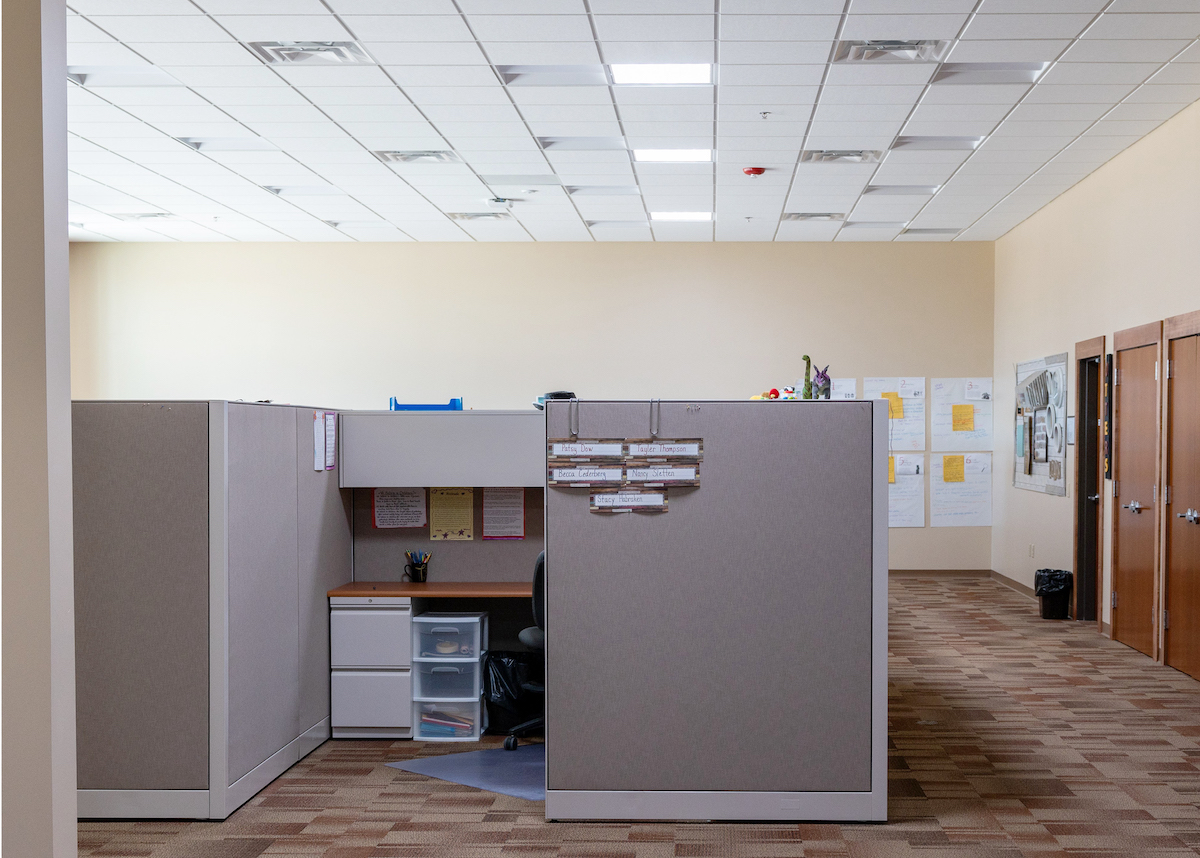
All Solatube products were equipped with a solar-powered daylight dimmer which allows the staff members to fully control the amount of daylight in the room. The SolaMaster 300 DS were also fitted with Thermal Insulation Panels to provide additional thermal performance with a lower U-factor against the central Minnesota climate.
Thirty-one SolaMaster 750 DS systems were used in larger classrooms, kitchen spaces, and open offices. The SolaMaster 750 DS is designed to deliver consistent light output throughout the day by effectively capturing low-angle rays of light in the morning and late afternoon, while rejecting high-angle rays at midday to prevent glare and overlighting.
SOLVING THE CODE REQUIREMENTS
As for the building codes, the district did have to double the roofing support to meet building structural standards, at an additional cost of about $1 million. Regarding fire code, the design team worked with the Minnesota State Department of Labor and Industry and local government representatives to obtain a waiver for the required use of intumescent paint, which is sometimes required to provide additional fire rating to the metal structure. An agreement was also reach with the state that all combustible materials would be removed, where feasible; the wood furring exterior did not need to be modified.
The adaptable tube design will allow for future interior layout flexibility. If the school's needs change, the tubular daylighting system’s light distribution lens and tubing can easily be realigned to new locations. Fixtures can be updated by swapping out or adding new accessories to customize the new space.
HIGH MARKS FOR NATURAL LIGHTING
Staff and students report positive effects of the natural light in the classrooms, including improved performance, productivity, and attitudes. The ability of the Solatubes to dim allows for seamless transitions to media presentations or nap time for the younger grades.
“People who tour the school and are shown the tubes are impressed by the way they dim and the ability for them to light rooms completely on their own,” said Melissa Amundson, Fergus Falls District Early Childhood Education Administrator.
“The ability to have access to natural light in all classrooms, even interior ones, has helped people feel more comfortable and less confined than an interior room that does not have windows or tubes at all,” said Amundson. “Many of the staff have been able to sustain plant life in their offices and classrooms for a more natural environment, something not typically achievable in buildings with only electrical lighting.”
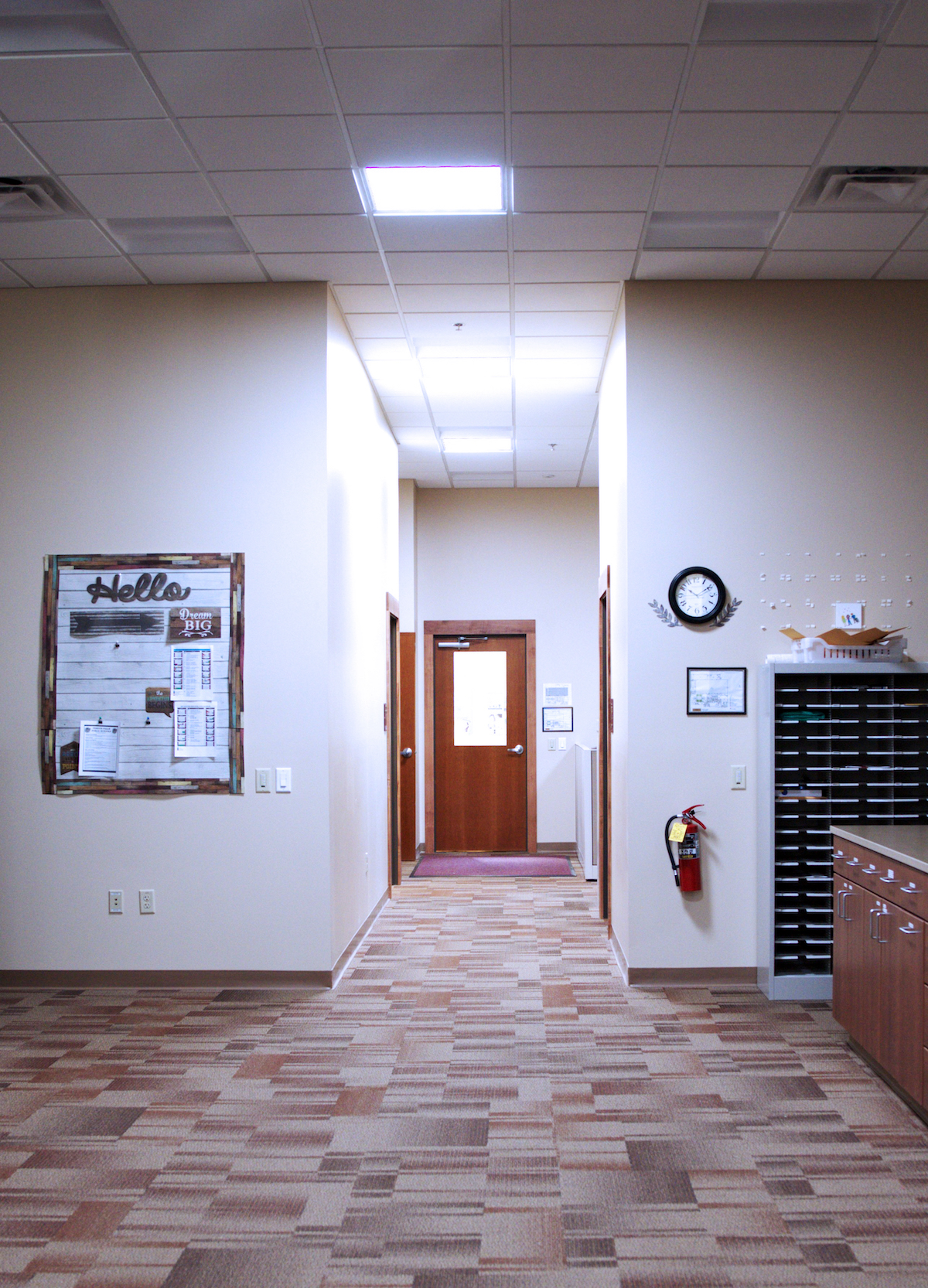
DISTRICT REALIZES MAJOR COST SAVINGS
The project totaled $8 million, with an additional $8 million projected for phase II expansion. Newly constructed educational facilities average $250-350/sf, but the cost of repurposing this building was estimated to be around $150/sf, saving the district $10-15 million in total when compared to building a school from the ground up.
Thanks to the cost savings, and by doing the project in two phases, the district was able to build the facility using existing reserve and operating fund, without a bonding referendum and without raising local property taxes.
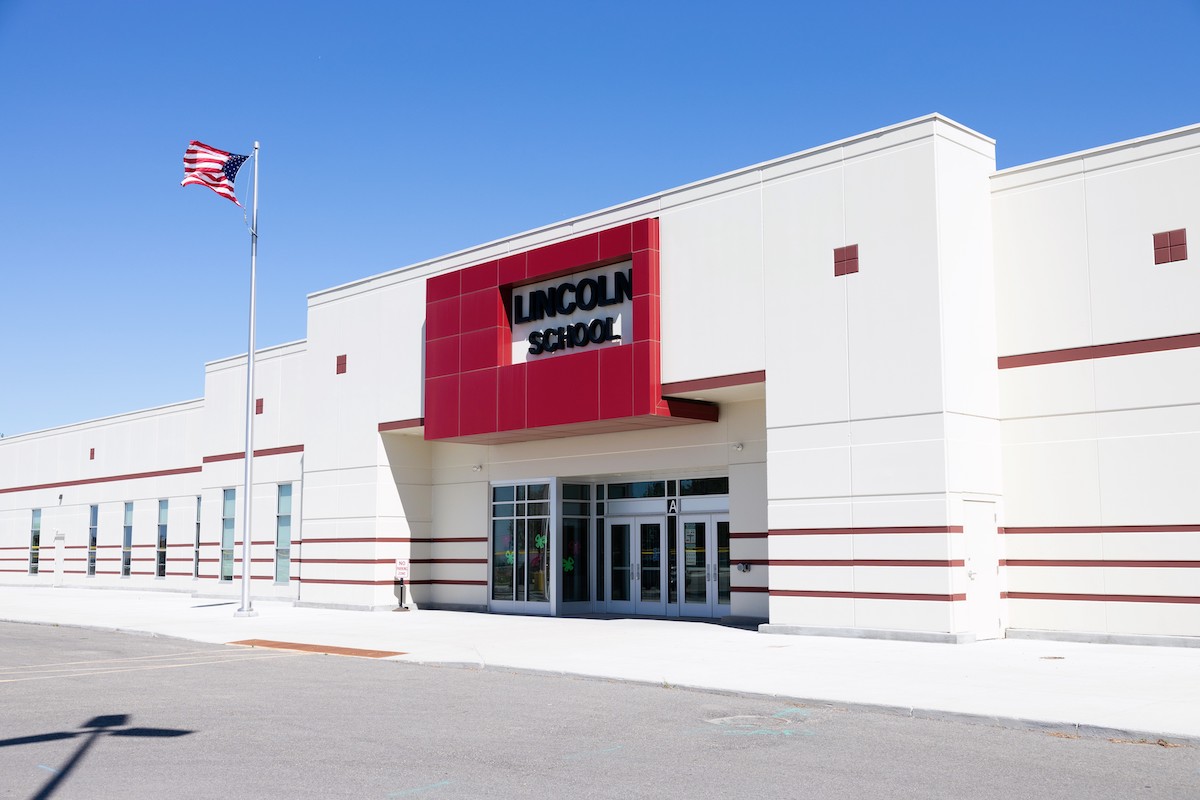
Lincoln School Design/Installation Team
ARCHITECT
Scott DeMartelaere, AIA Design Intent Architects
SOLATUBE DISTRIBUTOR/INSTALLER
Designer Specialty Products
SOLATUBE TECHNICAL RESOURCES
Solatube provides the Technical Resources needed to select, configure, and install the optimal Solatube product solution, including architectural specs, CAD drawings, cut sheets, and sustainability information. To find the resources you’re looking for, go to solatube.com/Technical-

